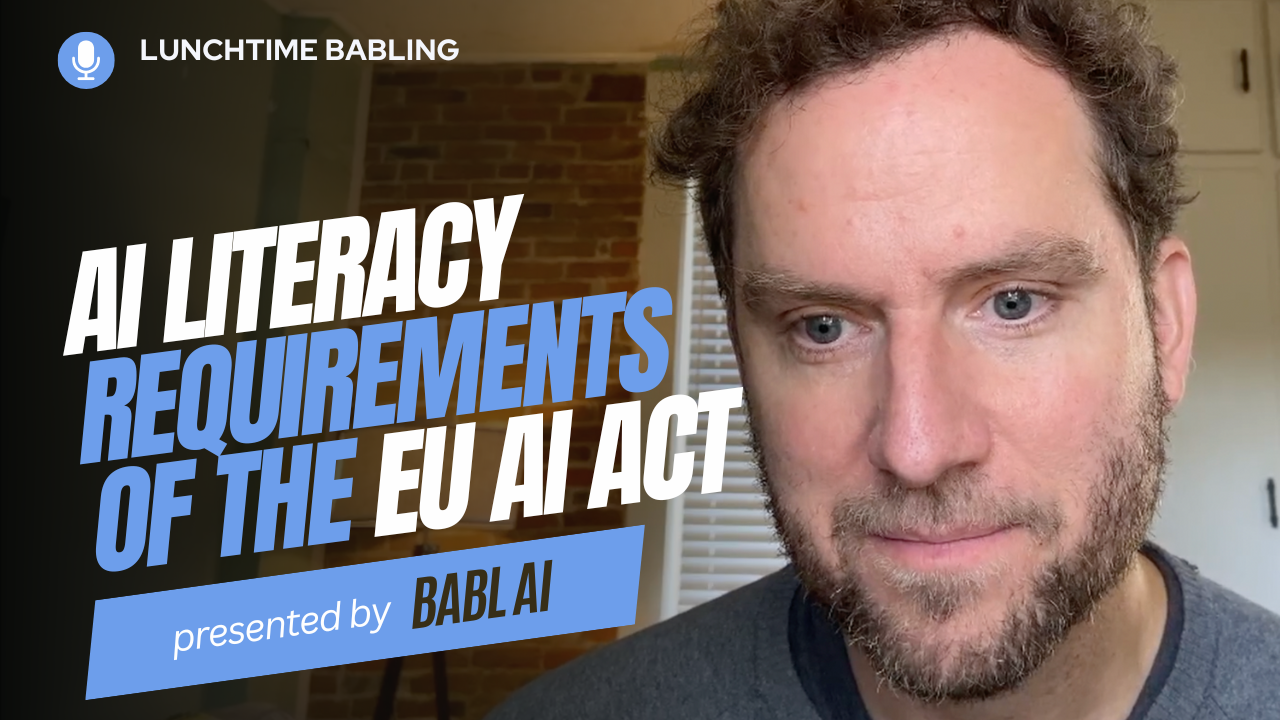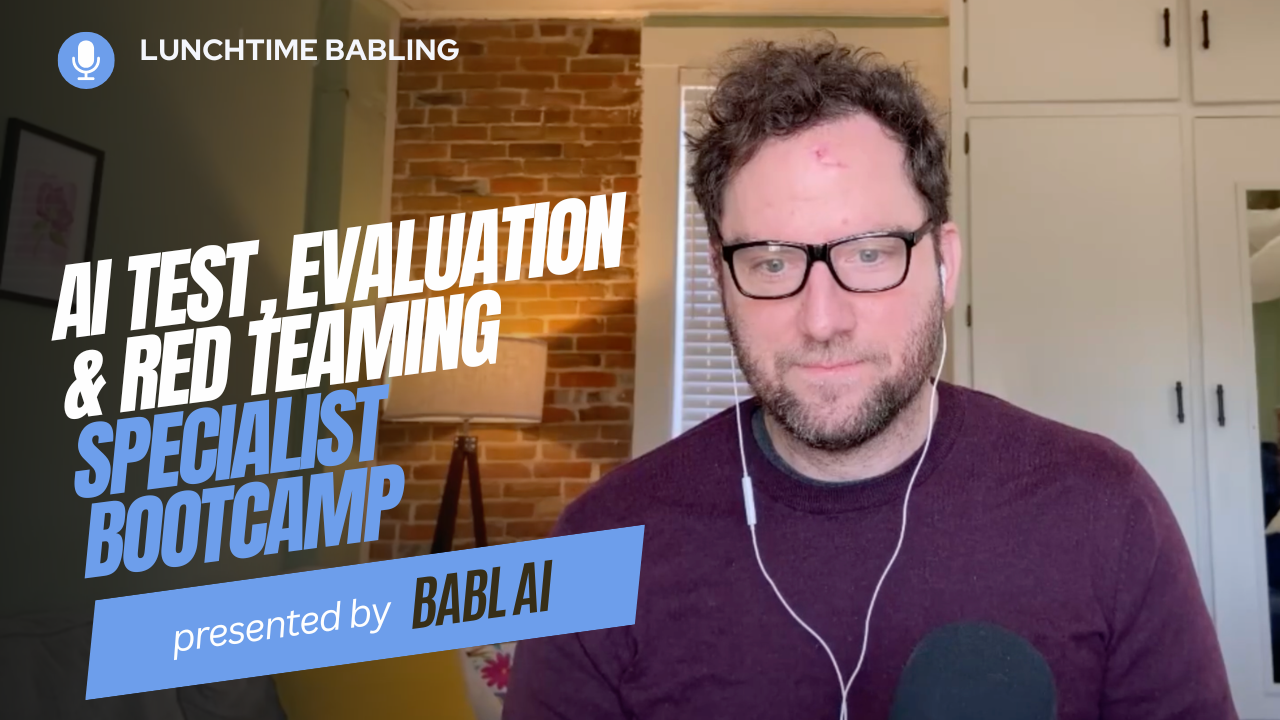A big milestone is coming up for the EU AI Act. In this episode of Lunchtime BABLing, CEO Dr. Shea Brown delves deep into the “AI Literacy Requirements of the EU AI Act,” highlighting key compliance obligations that will come into force on February 2, 2025.
Understanding Article 4 and Its Impact
The discussion centers on Article 4, which introduces mandatory AI literacy measures for all organizations that develop, deploy, or use AI systems within the European Union. Also, Dr. Brown explains that AI literacy goes far beyond a basic understanding of artificial intelligence. Thus, it requires companies to ensure that their employees — from technical teams to executives — understand how AI works, what risks it poses, and how to manage those risks responsibly.
Building an AI-Literate Workforce
Dr. Brown emphasizes that compliance depends on more than policy updates or documentation. Hence, it requires a cultural shift. Managers and decision-makers must be trained to make informed choices about AI integration, risk mitigation, and transparency. To help companies prepare, he offers several practical steps:
-
Launch AI training programs tailored to different roles.
-
Create internal guidelines for responsible AI use.
-
Collaborate with external experts to validate governance strategies.
These steps not only build compliance readiness but also foster trust and accountability within organizations.
Preparing for Compliance and Beyond
As February 2025 approaches, businesses that proactively educate their teams will be better positioned to meet the EU AI Act’s literacy requirements. BABL AI’s upcoming AI Literacy Requirements Training, launching November 4, will help general workforce members understand and meet these obligations.
Where to Find Episodes
Lunchtime BABLing can be found on YouTube, Simplecast, and all major podcast streaming platforms.
Need Help?
For more information and resources on the EU AI Act, be sure to visit BABL AI’s website and stay tuned for future episodes of Lunchtime BABLing





